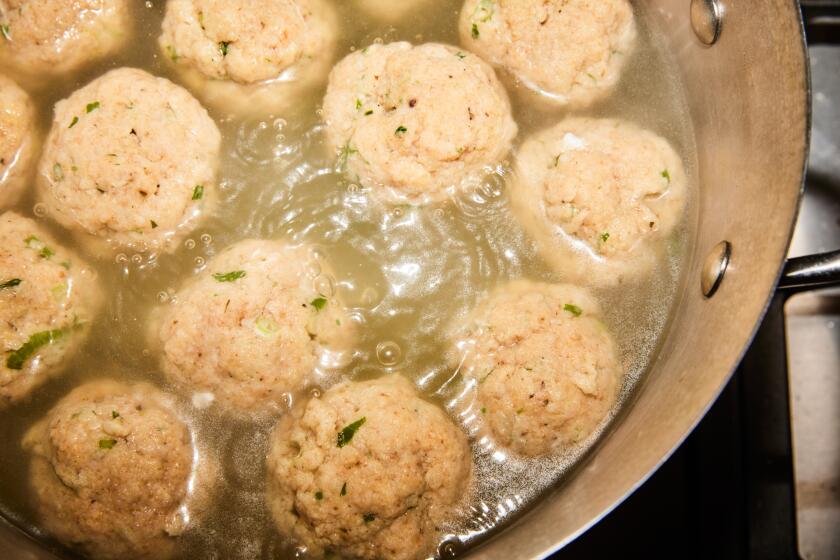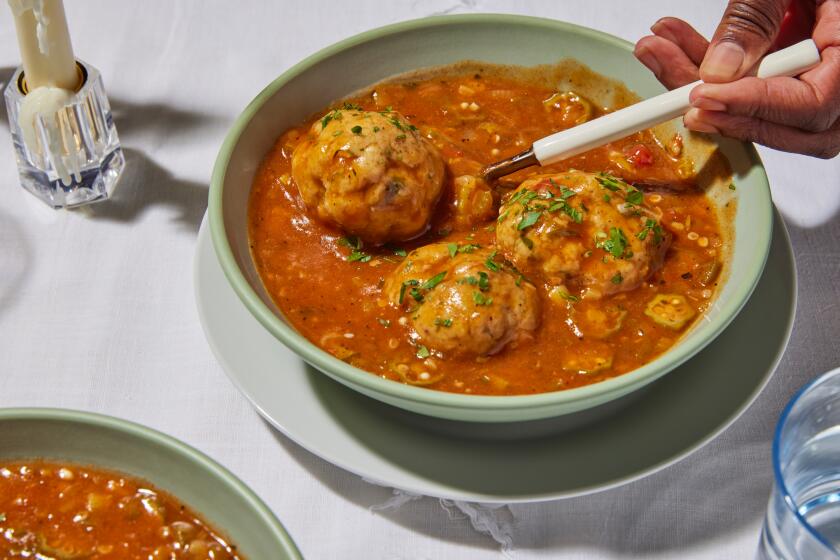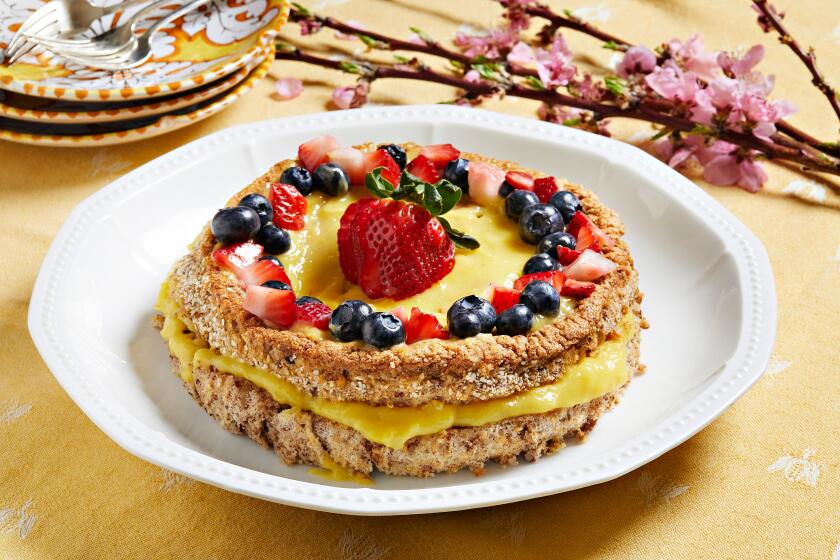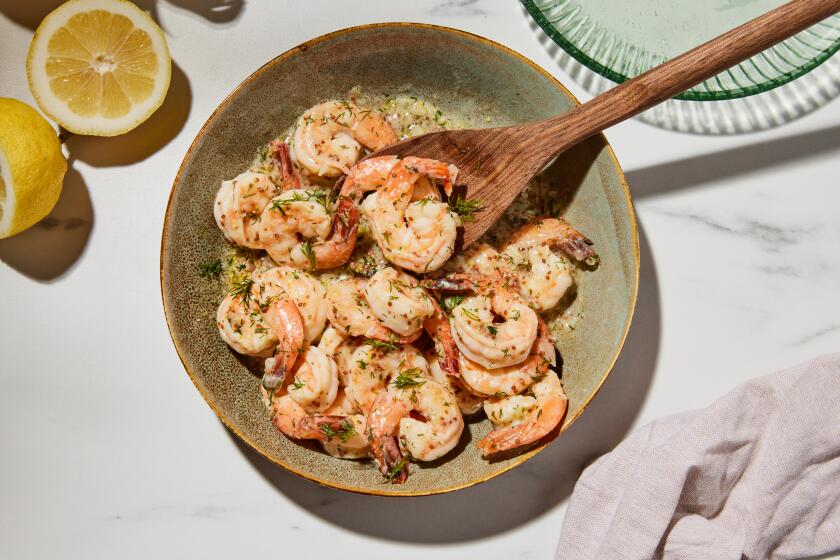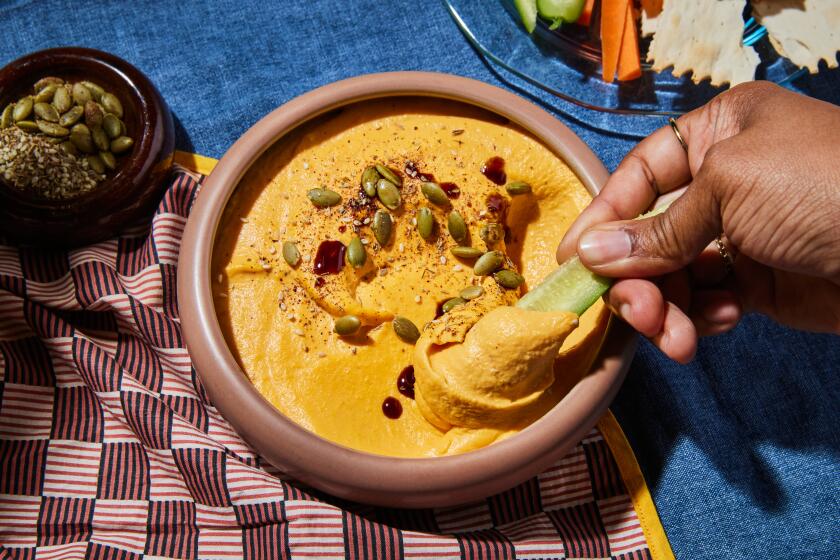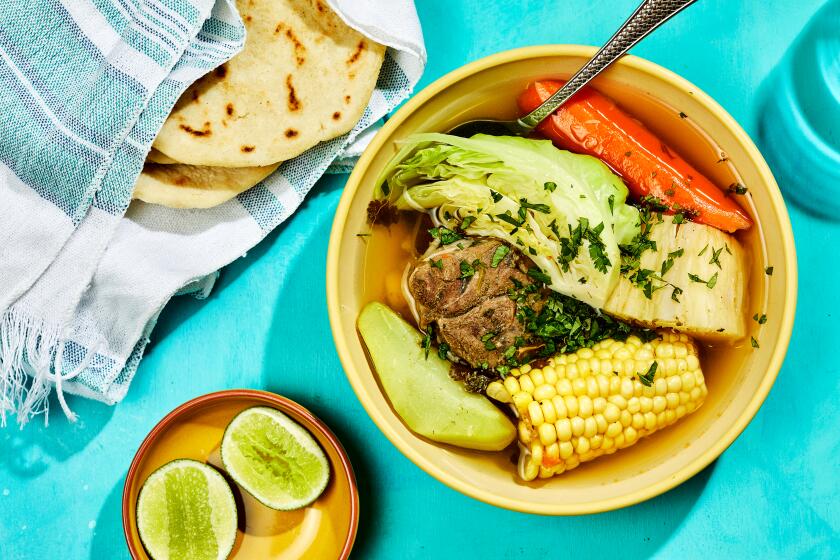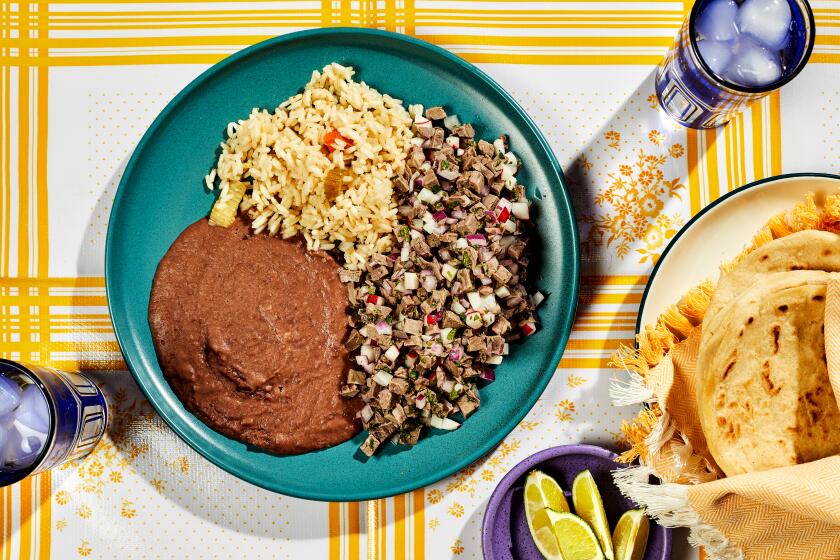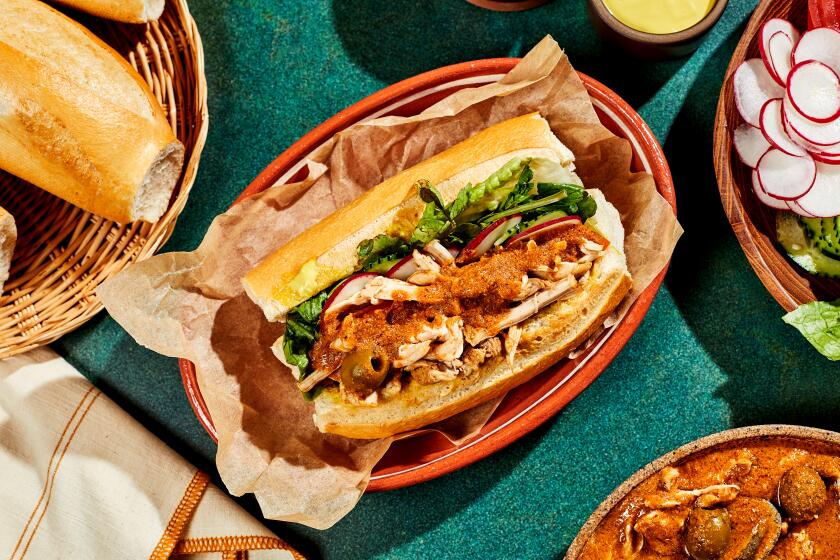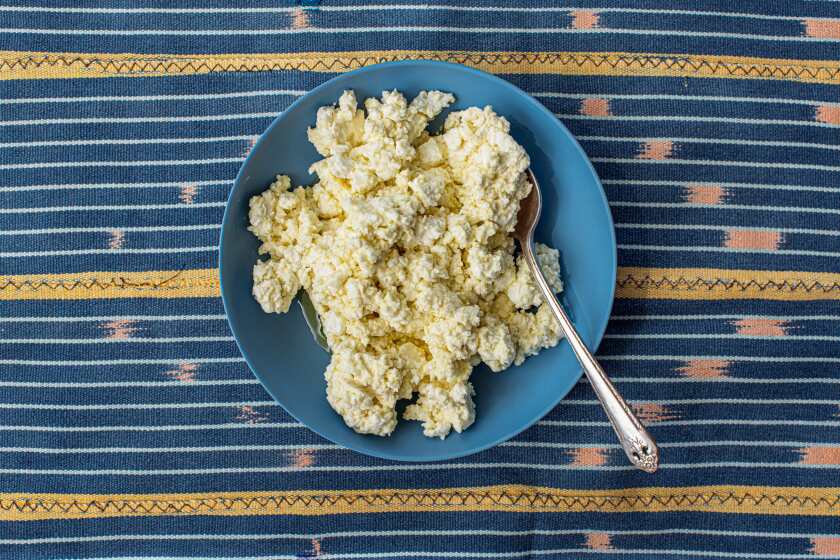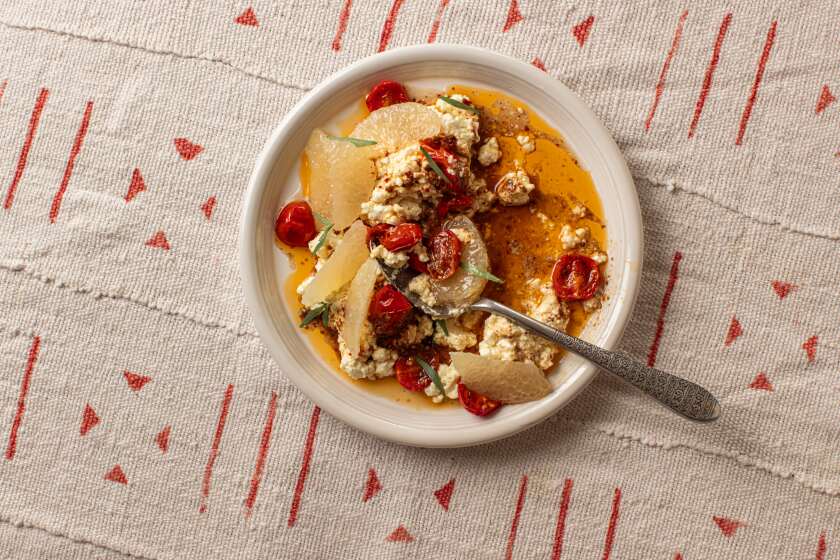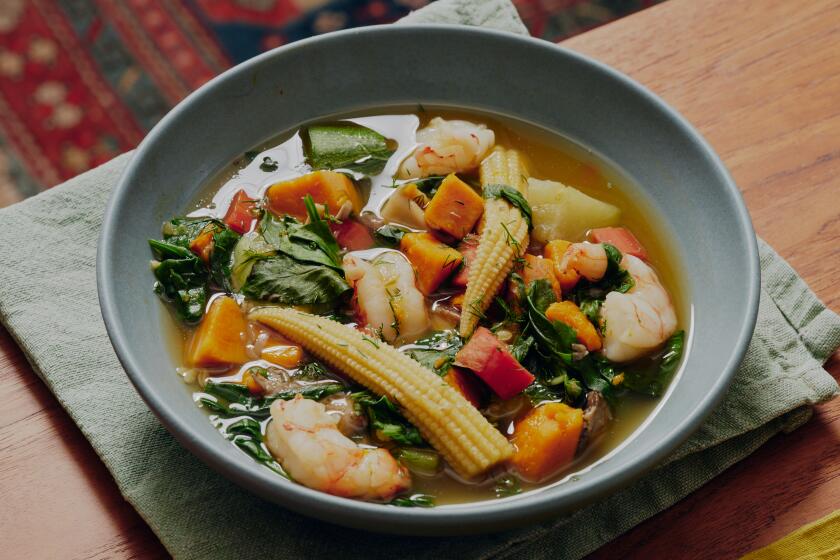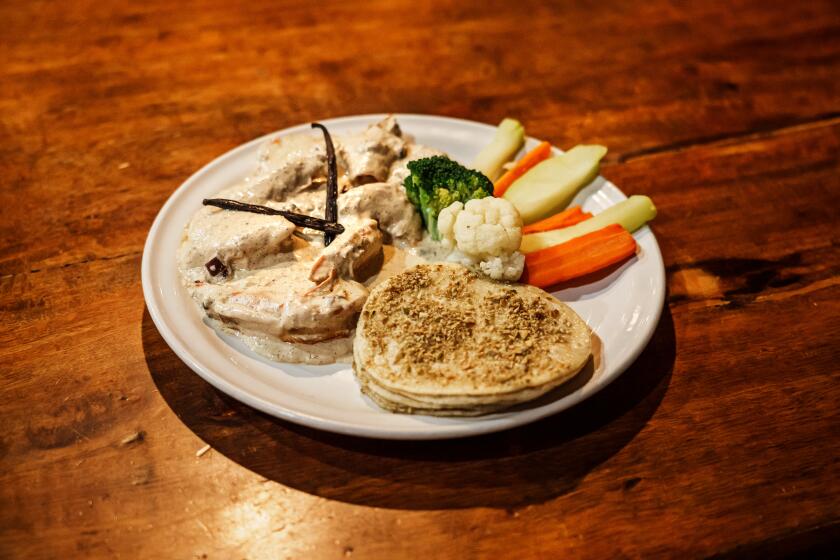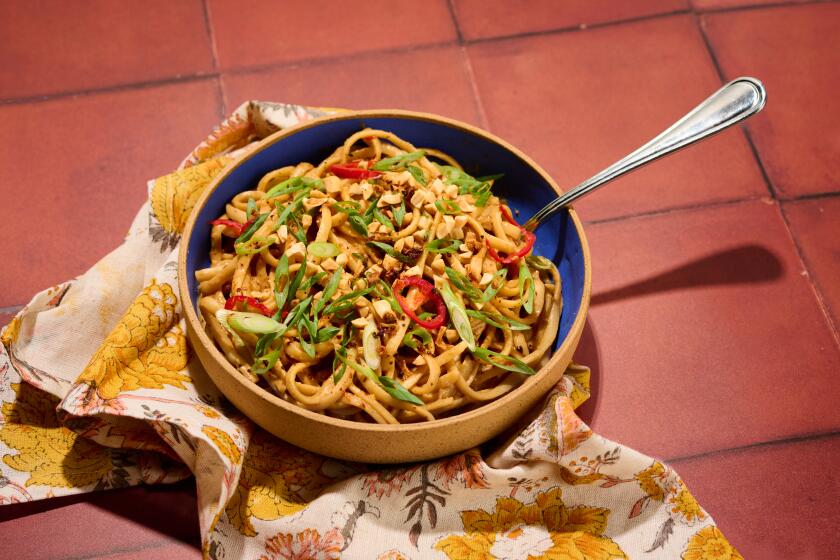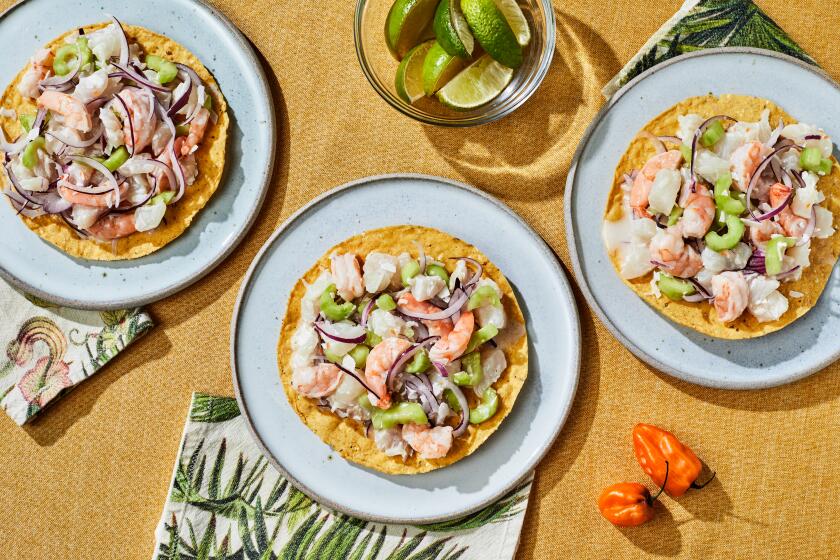Bruschetta alla Matalotta
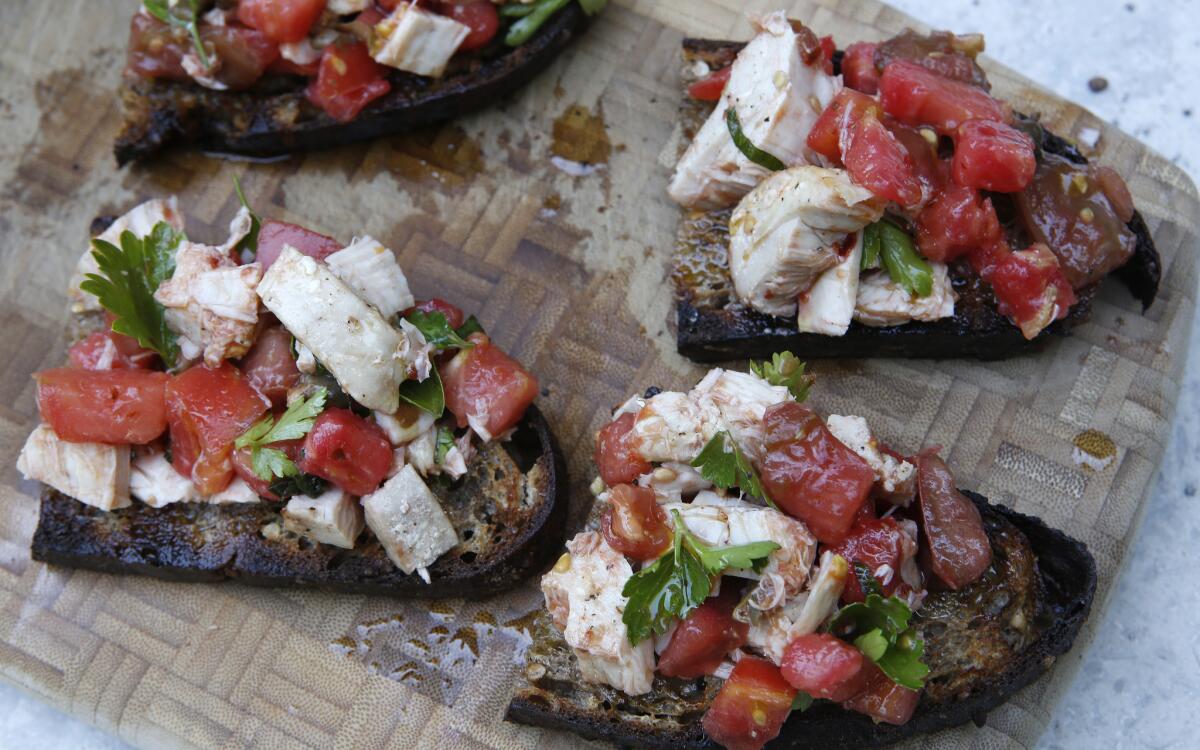
When Americans think about the grill, we tend to think of steak and burgers. When Italians think about the grill — la griglia — they may think of steak too, but more often sausages or, in summer, fish and seafood. That country, after all, is a giant peninsula surrounded by seas and dotted with inland lakes and rivers. In the heat of summer, much of the population moves to the water to tan, chat, drink and eat seafood. The grill might be in a luxe restaurant on a cliff overlooking the sea, or in the tiny kitchen of a palm leaf-topped shack on the beach — or made of a rudimentary metal grid precariously balanced on anything a few feet from the car door.
On that grill you might find sturdy bread being toasted for bruschetta and perhaps an assortment of sea life — from a slab of fish to squid or shrimp, maybe even clams or mussels. The great lazy move of using a slab of bread as your base is that everything is done on that simple outside grill.
Missing are many of the gadgets we find indispensable (Father’s Day gifts, those complicated bits of equipment Sur la Table likes to sell). Instead, there’s a lack of fear (grilling is not a NASA Mars experiment), just some wood or charcoal, and the most rudimentary of tools for poking at the fire and moving the food around. What is indispensable? Olive oil for brushing and seasoning the fish, a juicy lemon, salt and maybe a sprig or two of herbs.
Often, condiments are added after the food comes off the grill as the flavors of a simple marinade or a few additional ingredients are absorbed by the hot fish or seafood. This could be capers, a couple tablespoons of tomato sauce or chopped tomatoes, a handful of parsley.
When your instrument is simplicity, you become attuned to each note. Sometimes the fish itself is the condiment, not used as the main event but as the flavoring agent itself. Less is often more when it comes to food, especially when you have high quality ingredients — a quick brush of olive oil followed by a flurry of salt is often all you need.
There is no complicated application of smoke or sauces to obscure what’s there. Rather, the finished dish is transparent; what you see is what there is.
As for “technique,” the grill needs to be clean and well-oiled. It helps to have a good spatula with a thin edge — I love my flexible fish spatula. You need tongs that are long enough to keep your hand out of the fire but not so long or heavy that you lose the ability to maneuver. I’ve seen magnificent whole fish cooked over twigs and dry grape vine cuttings. Because fish and seafood cook so quickly, there really isn’t incentive to source hardwood — it’s too hot and takes a while to burn down to coals. The goal is the eating, not the creation of fire.
About the bread for your meal’s base: Italians toast or grill bread without oil, instead adding it later. Oil is prized and flavorful and, especially if it’s of exceptional quality, deserves to be tasted raw. So the order of preparation is to first toast the bread, then scrape the bread with garlic, then drizzle (or, for some of us, drench) it with oil, then finish with some good, crunchy salt. Paying attention to how you grill and season the bread ensures that even this base of your dish pops.
Because you’re grilling bread, there’s no need to heat up the kitchen with boiling pots of water for pasta. Decide what’s going atop the bread and start grilling the items that will take longer. Your fish will be last, as creatures born in water tend to cook very quickly. You can mix in any summer vegetables, but think simply: a few vertical slices of zucchini grilled and then sliced crosswise; or a fat red sweet pepper charred, skins slipped off and cut into strips; even zucchini flowers, stripped off the stem and torn into a few pieces. A base of raw chopped tomatoes (or not) and a handful of parsley leaves, a glug of oil, a squeeze of lemon and voilà! Or rather, eccola!
This bruschetta is a salute to the Sicilian dish tonno alla Matalotta, typically tuna garnished with a cooked sauce made of tomatoes, mint and capers. I’ll buy big eye or albacore, or another sturdy fish with meaty flakes (halibut, say, or red snapper or sea bass), or take the fishmongers’ suggestion. (I source fish using the Monterey Bay Aquarium Seafood Watch resources) Fish “steaks” are usually cut much thinner for the Italian grill so that they cook quickly. I use the so-called Canadian fish rule: 10 minutes per inch of fish cooked at high heat, though if you like your tuna barely cooked, a quick flash on each side is all you’ll need. You don’t need a lot of fish to make a generous bruschetta; Italians are thrifty cooks.
If you’ve never cooked with the catmint that Italians know variously as mentuccia or nepitella, try to find some at your local farmer’s market or grow a pot of it. It’s beautiful and has a subtle aroma and flavor, somewhere between oregano and mint. As for the capers, I prefer them salt-packed, rather than pickled, because the flavor is more complex and floral . If I use big capers, I give them a rough chop so the flavor is more diffused through the dish. However, if all that’s available are pickled capers, don’t stress — they’re fine but strong, so add half the amount, taste, then adjust.
One of the many joys of Italian grilling is its simplicity — so much so that actually making this bruschetta dish will take less time than reading this article. So go outside, light your grill and just make dinner.
Kleiman ran Angeli Caffe for 27 years. She’s the longtime host of KCRW-FM’s “Good Food” and a member of the James Beard Foundation’s Who’s Who of Food & Beverage in America.
In a bowl, combine the tomatoes, mint, parsley, capers, Aleppo pepper and lemon juice. Drizzle over about ¼ cup olive oil, and toss to combine. Taste and season with salt and pepper as desired. Cover and set aside.
Prepare the grill, making sure the cooking surface is very hot. Meanwhile, pat the fish dry using paper towels. Brush the steaks with olive oil and sprinkle with salt and pepper to taste.
Oil the grill, then add the steaks. Cook until the fish is opaque on the bottom and releases easily from the grate, 2 to 3 minutes. Flip the steaks over and cook on the other side. (A thin steak should take about 5 minutes.) Remove from heat. When the tuna is cool enough to handle, about five minutes, crumble over the tomato mixture and toss to combine.
Oil the grill. Add the bread slices and toast to your preferred state of char, then rub garlic cloves all over one side. Place the bread on a platter or plates and drizzle with olive oil. (I also like to salt the bread.) Halve the slices if they’re large. Divide the topping among the slices, drizzle with oil and serve immediately.
Get our Cooking newsletter.
Your roundup of inspiring recipes and kitchen tricks.
You may occasionally receive promotional content from the Los Angeles Times.

